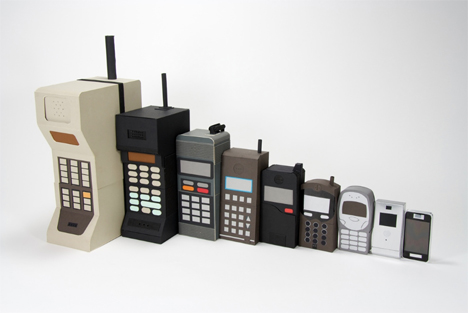Mobile telecoms and technology have come a long way since the first ever UK mobile phone call was made on 1 January 1985.
What started as a ‘transportable’ 11lb device that only a select few could afford is now a sleek essential in every person’s life – and has radically changed the way businesses operate.
Mobile is undeniably a lynchpin of business productivity, efficiency and customer service. It is no longer reserved for high flyers and high earners, but is instead a must-have – enabling businesses of any size to access information anytime, anywhere.
In fact, recent research from Vodafone, which facilitated the first UK mobile phone call over its network, found that 67% of businesses say mobile communications is essential to satisfying the demand for being ‘always-on’ and responsive.
>See also: 15 tips for developing and improving mobile applications
“Mobile hasn’t only allowed employees to work from anywhere – it also means they can spread out across various offices and even countries while still effectively collaborating and working towards a common goal,” says David Langhorn, head of corporate and large enterprise at Vodafone UK. “This has been one of the driving factors behind rapid expansion of large businesses, and the creation of borderless enterprise.
Vodafone’s research discovered that 60% of employees need to work with colleagues in another country and 68% of senior managers say it is easier than ever to trade internationally.
“This in turn has positive impact on the economy as businesses can now grow and operate on a scale they never would have thought possible 30 years ago,” said Langhorn.
Since the first mobile phone call, the growth of mobile has been exponential. By 1993, Vodafone had over a million customers and between 1999 and 2000 this leapt from five to ten million customers.
Today, there are 7 billion mobile connections globally and over 45 million in the UK alone, according to the GSMA, and the UK ICT market is worth £58 billion annually (UKTI).
The rise of other technology tools such as cloud services, unified communications, secure remote working and 4G have also become a priority investment area for a variety of businesses, helping them to drive productivity, cost savings and differentiate services to their customers.
New opportunities for entrepreneurs
While the tools needed for businesses today may be more extensive than in 1985, technology has dramatically reduced set up costs, and therefore risk, for aspiring entrepreneurs.
Investment in real estate, maintenance and other overheads in 1985, for example, meant that business owners often had to make significant capital investment to make it through the set-up phase, and they usually took out loans against their homes.
Today, the average consumer has access to everything they need to set up a business from anywhere, such as laptops, smartphones, tablets, social platforms for networking and even a virtual landline on their mobile.
As a result, starting a business is much more accessible. PeoplePerHour estimated the average cost of a new business set up was £312 in 2013 – more than 10 times less than the cost of the device used to make the first mobile call on Vodafone’s network.
For Britain in particular, the accessibility of mobile technology has contributed to a surge in young entrepreneurs that have struggled to find work in the post-recession marketplace. The country has risen to the fourth most entrepreneurial economy in the world (according to the Global Entrepreneurship and Development Index, 2014).
Mobile technologies, together with affordable and scalable technologies like cloud services, are also helping SMEs to compete with their larger counterparts, be more responsive to customers and be more successful.
Research from Vodafone released in June last year found that two-thirds of employees in ‘progressive’ SMEs use smartphones and laptops as well as other mobile technologies. This suggests that these businesses take more action to ensure their employees and customers interact more flexibly and more efficiently.
>See also: FEATURE: Mobile collaboration in the enterprise
Jonathan Kini, head of small and SME business at Vodafone, said: “Mobile and remote connectivity is no longer a luxury in business; it’s a necessity for business owners and a widely held expectation amongst employees.
Indeed, in research by the Federation of Small Businesses, 71% of companies rated mobile phones as crucial or very important to their business.
In addition to this, a recent Vodafone survey found that 86% of employees demand flexible working, but only 60% equip it.







